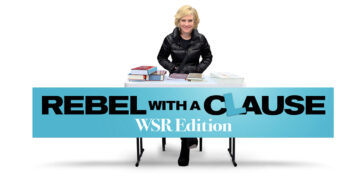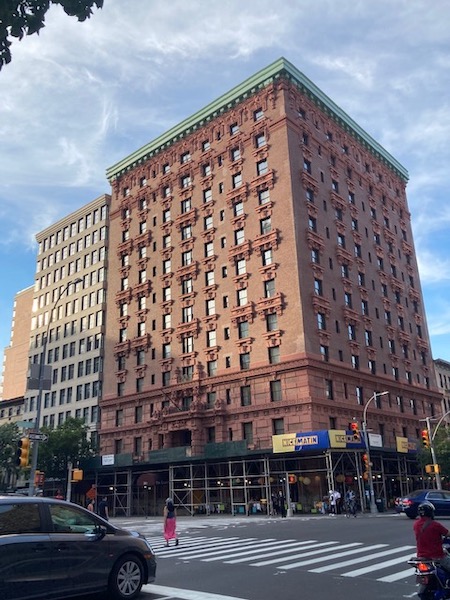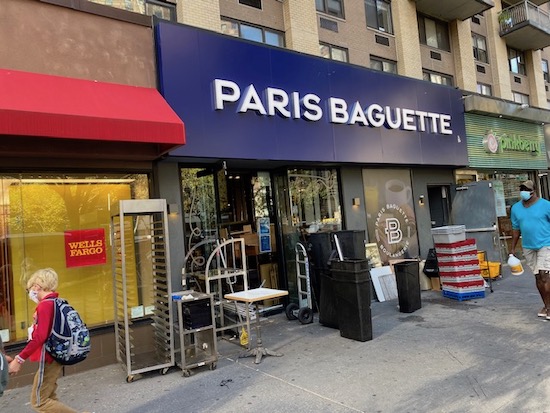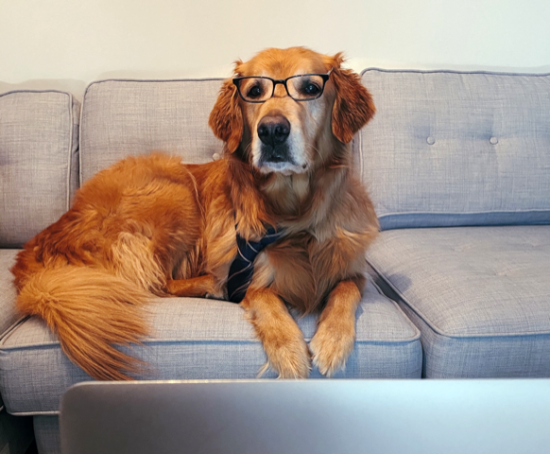
By Lisa Kava
The Good Dog Foundation, an organization that trains and certifies dog therapy teams and arranges for these teams to visit those in need, shifted its work to a virtual platform at the beginning of the pandemic. A new training course and all therapy visits are currently taking place over Zoom.
Therapy dogs and their human handlers trained by The Good Dog Foundation have regularly visited a number of Upper West Side facilities in the past. The teams have spent time with students at The Julliard School at Lincoln Center, residents of Atria 86, an assisted living residence on West 86th Street, and residents of The New Jewish Home, a comprehensive care facility for older adults on West 106th Street, among other facilities.
In March when Covid-19 hit, The Good Dog Foundation abruptly suspended operations, according to Bruce Fagin, Executive Vice President and Upper West Sider. “We were bereft without any ability to visit people and to conduct training classes,” said Fagin. The impact of shutting down felt particularly tough for Fagin and his colleagues as part of an organization that helps others in times of crisis. “There has never been a crisis that the Good Dog Foundation hasn’t helped with. After 9/11, Good Dog therapy teams worked with on-site victim response. We were there for Sandy Hook, Hurricane Katrina and the Boston Marathon. For us not to be able to run in to help was a shock.”
Fagin and his co-workers were forced to think of alternative routes for training and visits. Renee Payne, Director of Training, together with Rachel McPherson, the Good Dog Foundation’s founder, developed a course called The Good Dog Prep School. The workshop, taught by Payne, consists of four one-hour weekly Zoom sessions for dog owners and their dogs. She teaches basic obedience work, therapy skills, and tricks. It is not a substitute for in-person therapy training rather a precursor and provides an introduction to therapy work, Payne explained to West Side Rag in a phone interview. “The course benefits anyone who wants to deepen their relationship with their dog.”
Upper West Siders Ross Baum and Wendy Peace, recent participants, are fans.
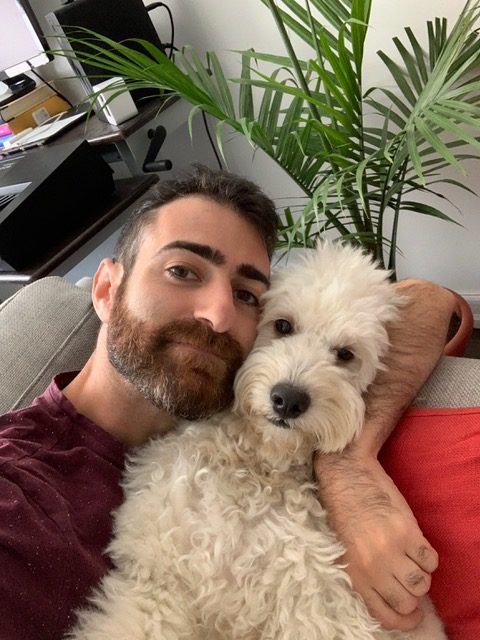
Baum, who says he bonded with his dog Wally during the class, learned skills specific to dog therapy such as desensitization to loud noises and medical equipment. “I learned that creating a distraction such as putting peanut butter on a plate while someone knocks at the door translates to therapy work.” Baum hopes to eventually visit hospitals and schools with Wally but became of aware of behaviors that needed improvement. “I didn’t know that jumping was a deal breaker for a therapy dog.”
Peace, who had been part of a therapy team with her previous dog, said the class was “a phenomenal introduction” for teaching her new puppy basic commands, obedience, games and tricks.” Peace was pleasantly surprised at how well the Zoom format worked. “My puppy Zucca was hearing other dogs throughout the class and somehow stayed engaged.” Peace recalled her prior therapy work visiting Julliard during intense performance weeks. “The students called us stress busters.”
In addition to implementing virtual training, The Good Dog Foundation needed to figure out how therapy teams could conduct virtual visits.
“We were told by our partners at The New Jewish Home that residents were starting to feel more isolated during the pandemic without any social life. I had teams desperate to do good,” said Nicole Gilpin, Manager of Visit Coordination. Gilpin has since arranged fifteen virtual therapy team visits with individuals living at The New Jewish Home. Teams conduct one-on-one zoom visits with a resident for ten minutes. The visits involve “interacting with your dog and performing tricks for the entertainment and social value and comfort of the residents,” said Gilpin.
The Good Dog Foundation also hosted virtual therapy team visits with Julliard students at the end of the spring semester. These visits were interactive: multiple students could sign up for a twenty minute session where the students would ask the handlers about their dogs and their work together. “The virtual visits were a way of trying to uplift the students’ spirits at a stressful time when nobody understood what the future was going to look like,” explained Gilpin who is planning to schedule additional sessions for the fall semester.
For more information about The Good Dog Foundation and if you think you might be interested in therapy work with your dog click here.
The Good Dog Foundation is also hosting a virtual “Howl-O- Ween” event on October 31st, including a comedy performance, poker tournament and a dance party with a costume contest. Information on this event can be found here.



